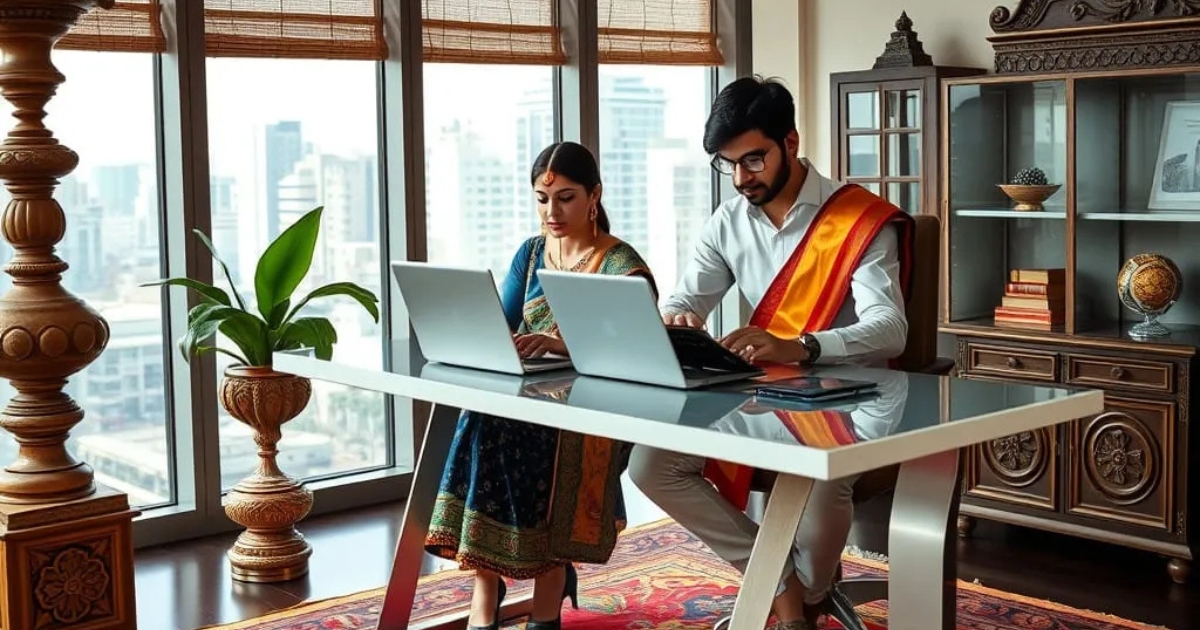Starting a Second-Hand Goods Store Business in India: A Complete Roadmap for Success
 The second-hand goods market in India is experiencing a significant boom, driven by increased consumer awareness and a growing focus on sustainability. With the rise of online platforms and changing attitudes toward pre-owned items, this sector offers immense opportunities for entrepreneurs. According to recent studies, the resale market in India is projected to grow at a CAGR of 15% over the next five years, making it a lucrative industry to explore.
The second-hand goods market in India is experiencing a significant boom, driven by increased consumer awareness and a growing focus on sustainability. With the rise of online platforms and changing attitudes toward pre-owned items, this sector offers immense opportunities for entrepreneurs. According to recent studies, the resale market in India is projected to grow at a CAGR of 15% over the next five years, making it a lucrative industry to explore.
Why Starting a Second-Hand Goods Store Business in India is a Smart Move

A second-hand goods store involves buying and selling pre-owned items, ranging from furniture and electronics to clothing and books. The demand for such stores is fueled by affordability, environmental consciousness, and a shift toward minimalism. With India’s large and diverse population, this industry is thriving as it caters to both urban and rural markets.
Reasons to Start This Business

- Growing consumer demand for affordable and sustainable products.
- Government incentives promoting small businesses and sustainable practices.
- Low initial investment and high-profit margins.
- Success stories of online and offline second-hand goods businesses in India.
Why You Should Start a Second-Hand Goods Store Business in India

India’s vast consumer base and growing economy make it an ideal location for second-hand goods businesses. The country’s young population is increasingly adopting sustainable shopping habits, creating a robust market for pre-owned items. Additionally, the availability of affordable technology and infrastructure supports the growth of this sector.
Detailed Steps to Establish Your Second-Hand Goods Store Business

1. Pre-establishment Phase
Begin by conducting thorough market research to understand your target audience and their preferences. Analyze competitors to identify gaps in the market and choose a business model—whether online, offline, or a hybrid. Select a strategic location that ensures accessibility and visibility for your store.
2. Business Setup
Decide on the legal structure of your business, such as a sole proprietorship, partnership, or LLP. Register your business with the appropriate authorities and complete the necessary documentation. For assistance, consider exploring India company incorporation services. You can also refer to our India company registration guide for detailed steps. Set up your store infrastructure, including shelving, storage, and display areas, to create an inviting shopping experience.
3. Operational Planning
Allocate resources effectively by hiring skilled staff and training them in customer service and inventory management. Invest in technology like inventory tracking systems to streamline operations. Establish standard operating procedures (SOPs) to ensure consistent quality and efficiency in your business processes. Consider adopting human resource management software to simplify staff management.
4. Marketing and Business Development
Develop a strong brand identity and leverage digital marketing to reach your target audience. Utilize social media platforms and e-commerce websites to promote your store. Collaborate with local businesses and participate in community events to build a network and enhance visibility. You can also explore business advisory services to refine your marketing and development strategies.
Local Regulations and Licensing

To operate a second-hand goods store in India, you must comply with local regulations and obtain the necessary licenses. Below are some key requirements:
- Shop and Establishment Act license for operating your store.
- GST registration for tax compliance.
- Trade license from the local municipal authority.
- Adherence to consumer protection laws and safety standards.
For more details on regulatory compliance, refer to our guide to start a business in India.
Challenges and Considerations

While the second-hand goods market offers numerous opportunities, it also comes with certain challenges. Entrepreneurs must address market competition, resource management, and cultural perceptions of pre-owned items. Below are some common challenges and tips to overcome them:
- High competition from established players—differentiate your store through unique offerings and excellent customer service.
- Inventory sourcing—build partnerships with suppliers and encourage customers to sell their pre-owned items to your store.
- Technology adoption—invest in user-friendly software for inventory and sales management. Consider AI accounting software for efficient financial management.
- Consumer trust—ensure quality control and offer warranties to build credibility.
Financial Planning Aspects

Effective financial planning is crucial for the success of your second-hand goods store. Begin by estimating the initial investment required for inventory, store setup, and marketing. Below are some key aspects to consider:
- Initial investment: Store setup costs, inventory purchase, and marketing expenses.
- Operating costs: Rent, utilities, salaries, and technology subscriptions.
- Funding options: Bank loans, venture capital, or personal savings.
- Revenue projections: Estimate sales based on market research and customer demand.
For a detailed guide on financial planning, explore our comprehensive business plan.
Conclusion
The second-hand goods store business in India offers immense potential for growth and profitability. With the right strategy, market research, and operational planning, you can establish a successful business in this thriving industry.
Ready to Start Your Second-Hand Goods Store Business?
At 3E Accounting, we provide comprehensive support for entrepreneurs looking to start their businesses in India. From company formation to accounting services, and even company secretary services, our expert team is here to guide you every step of the way.
Contact us today to schedule a consultation and take the first step toward building your second-hand goods store business. Together, we can turn your entrepreneurial vision into reality. Learn more about our company’s mission and meet our expert team.


